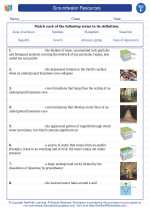Groundwater Resources -> noise
Noise
Noise is defined as unwanted or unpleasant sound that can be disruptive to communication, concentration, and overall well-being. It is a form of environmental pollution that can have negative effects on human health and behavior.
Sources of Noise
- Transportation (e.g. car engines, airplanes, trains)
- Industrial processes and machinery
- Construction and demolition activities
- Household appliances and equipment
- Recreational activities (e.g. concerts, sporting events)
Effects of Noise
Noise pollution can have a range of effects on individuals and communities, including:
- Hearing loss and impairment
- Stress, anxiety, and sleep disturbances
- Interference with communication and concentration
- Increased risk of cardiovascular diseases
- Negative impact on wildlife and ecosystems
Measuring Noise
Noise is measured in decibels (dB), with different levels of noise corresponding to different decibel ranges. For example, normal conversation typically ranges from 60-70 dB, while a rock concert can reach 120 dB or higher.
Ways to Reduce Noise Pollution
- Use of soundproofing materials in buildings
- Regulation of noise levels in urban areas
- Proper maintenance of machinery and equipment to reduce noise emissions
- Public education and awareness about the impact of noise pollution
- Design of quieter transportation and industrial technologies
Study Guide Questions
- What is the definition of noise?
- List three sources of noise pollution.
- What are the potential effects of noise on human health?
- How is noise measured, and what unit is used for measurement?
- Discuss two ways to reduce noise pollution in urban areas.
By understanding the sources, effects, measurement, and potential solutions to noise pollution, individuals can take steps to minimize their exposure to excessive noise and advocate for policies that promote quieter and healthier environments.
.◂Science Worksheets and Study Guides Sixth Grade. Groundwater Resources
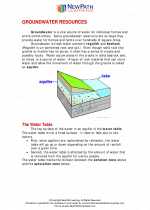
 Worksheet/Answer key
Worksheet/Answer key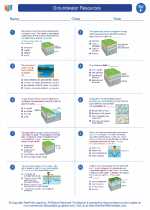
 Worksheet/Answer key
Worksheet/Answer key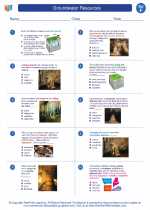
 Worksheet/Answer key
Worksheet/Answer key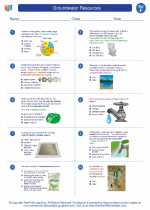
 Vocabulary/Answer key
Vocabulary/Answer key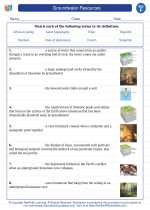
 Vocabulary/Answer key
Vocabulary/Answer key